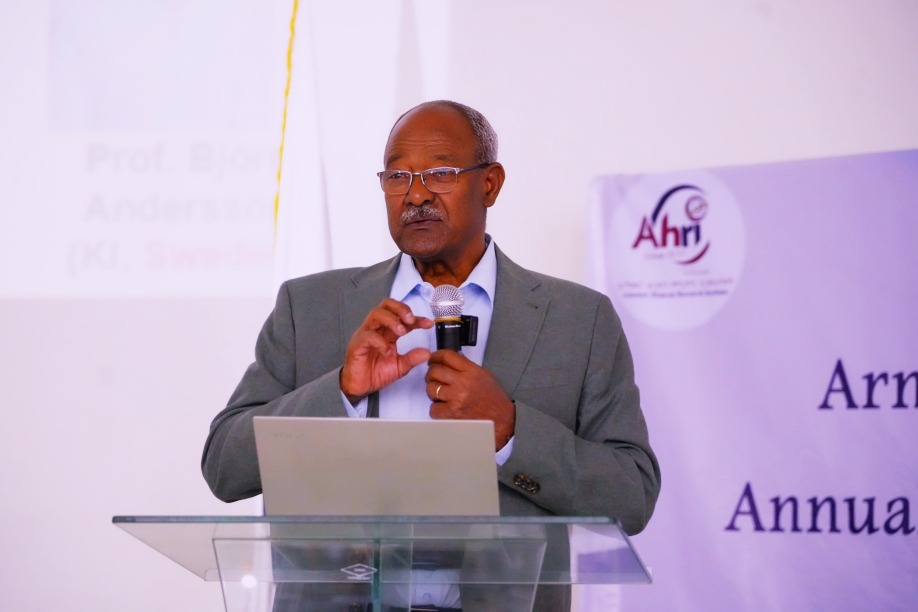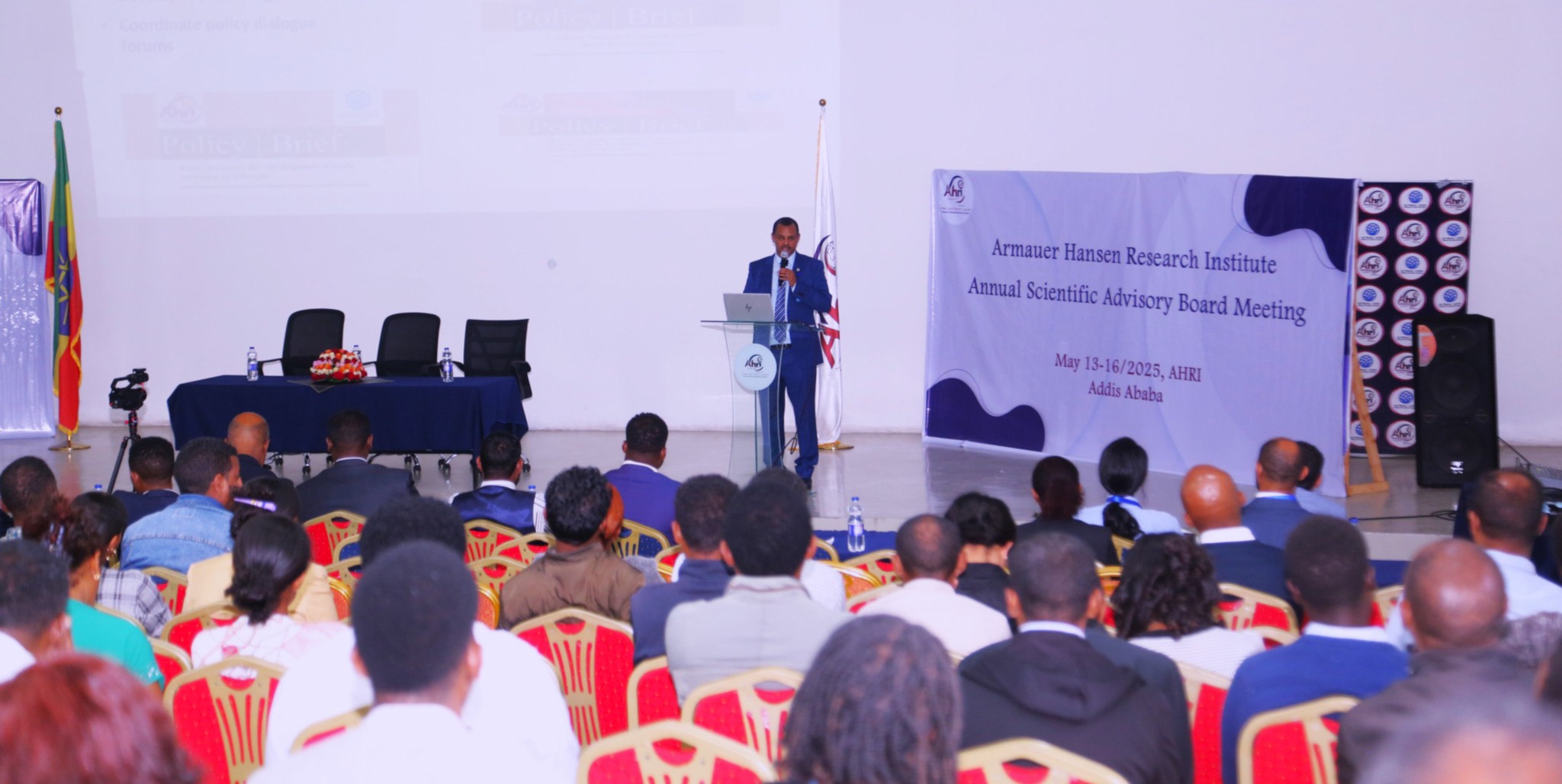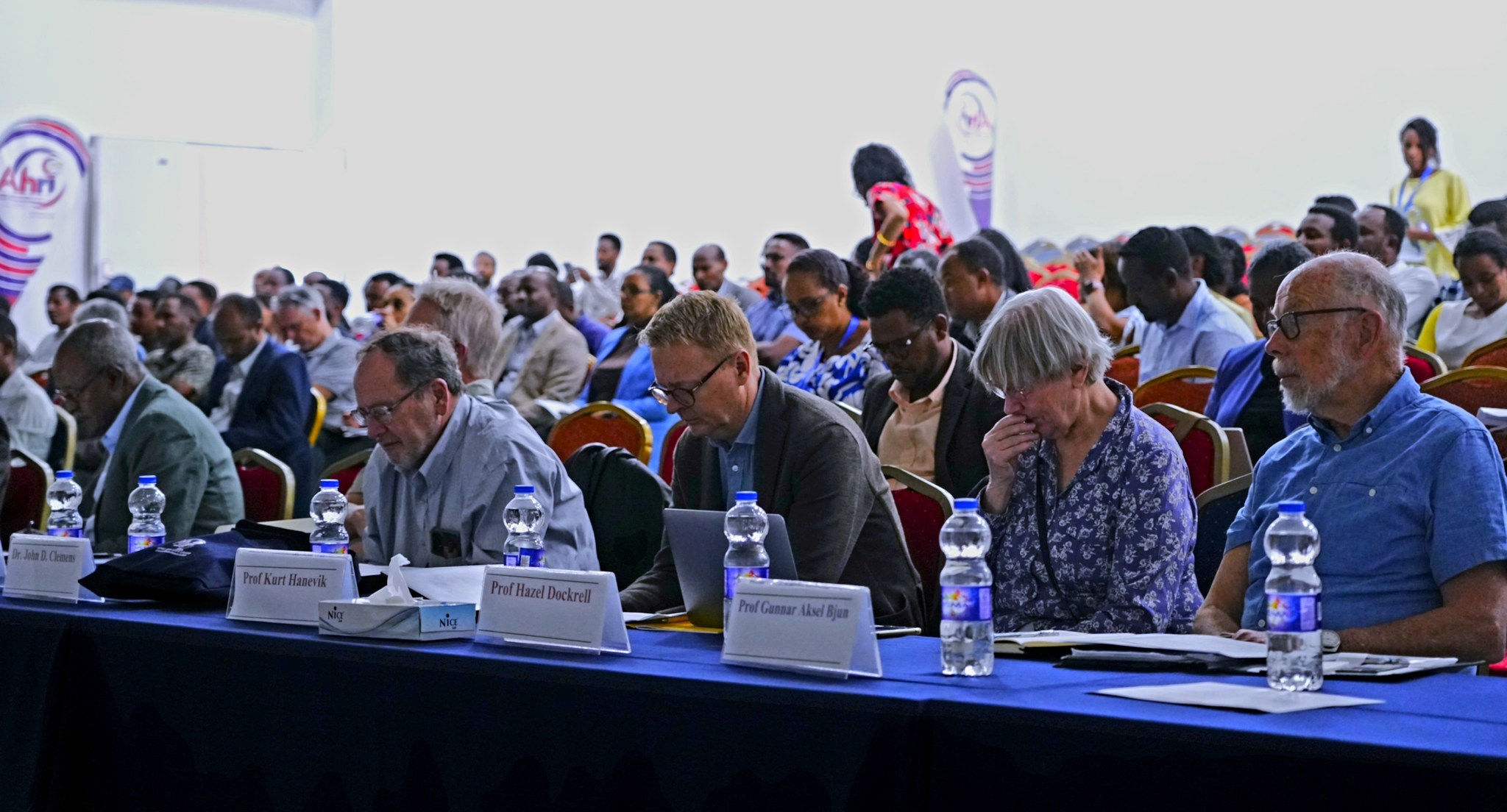Addis Ababa, Ethiopia – May 13, 2025 – The Annual Meeting of the Armauer Hansen Research Institute (AHRI) Scientific Advisory Board (SAB) commenced on May 13,2025, with a strong emphasis on the institute’s significant strides in the past Ethiopian fiscal year (EFY).
Prof. Tsige Gebremariam, SAB Chairperson, opened the meeting by highlighting AHRI’s remarkable achievements in 2016 EFY. “AHRI not only exceeded expectations but also demonstrated the it’s growing impact across key national and global health priorities,” Prof. Tsige stated. He emphasized that AHRI surpassed numerous strategic targets, solidifying its position as a leading biomedical and research institution both in Ethiopia and internationally.

Among the notable accomplishments, Prof. Tsige pointed to the production of 29,499 doses of the Fermi rabies vaccine, achieving 84% of its annual target. Furthermore, AHRI actively collaborated with 17 local pharmaceutical manufacturers to develop a Good Manufacturing Practices (GMP) roadmap, a crucial initiative aimed at enhancing the quality and productivity of Ethiopia’s pharmaceutical sector.
The Cleanherb Initiative was also lauded as a prime example of AHRI’s commitment to bridging traditional knowledge with modern science, fostering trust and engagement within local communities in research endeavors.
“Through these collective achievements, AHRI continues to uphold its responsibility not only as a center of research excellence but also as a proactive agent for health equity, innovation, and sustainable development,” the board chairperson affirmed.

Prof. Afework Kassu, Director General of AHRI, stated that AHRI “has stood as a pillar of excellence in scientific research, dedicated to addressing some of the most pressing health challenges affecting our region and the world.” He further added, “From infectious diseases to non-communicable diseases, our teams have worked tirelessly to generate knowledge, drive discoveries, and translate scientific findings into impactful solutions.” Prof. Afework acknowledged that this progress was made possible through the invaluable guidance and support of the scientific advisors.
AHRI’s commitment to generating impactful knowledge was further evidenced by the publication of 91 peer-reviewed articles in prestigious journals including Nature Medicine, The Lancet, and The Lancet Global Health. These publications addressed critical health issues such as antimicrobial resistance and non-communicable diseases.
Dr. Alemseged Abdissa, Deputy Director General for Medical Research, provided further details on major programs and achievements in research and development, encompassing innovation, incubation development, and advanced infrastructure. He proudly announced that AHRI achieved the Good Financial Grant Practice: Platinum tier.
Messay Woldemariam, Deputy Director General of AHRI for Pharmaceutical Industry Development, outlined AHRI’s vision: to be a Center of Excellence in Medical Research & Innovation and to foster a Competitive Pharmaceutical Manufacturing Industry.
He also shared the ongoing Research and Development endeavors, including a Feasibility Study on Cassava Starch Development as a Pharmaceutical Industry Input, Evaluation of Acetylated Cassava Starch as a Directly Compressible Excipient, exploring the transformation of Waste Cooking Oil into beneficial recyclable products, and a comparative evaluation of locally manufactured and imported Ciprofloxacin tablets.
The Annual SAB meeting underscores AHRI’s dedication to advancing health through impactful research, innovation, and collaboration, both nationally and globally.
According to Council of minister’s regulation number 530/2023
The following are Duties and Responsibilities of SAB;
- Support the Institute to foster its competitiveness and sustainable growth in technology and innovation by advising the Institute in research policy, strategy and other fundamental issues of the Institute;
- Advise and support the Institute to devise advanced and problem-solving scientific methodologies to ensure its global competitiveness;
- Support the Institute to create collaboration with similar institutes and partners; participate in national and international health research development works and engage in cooperative works;
- Evaluate the Institute’s annual report and give advisory directions.
